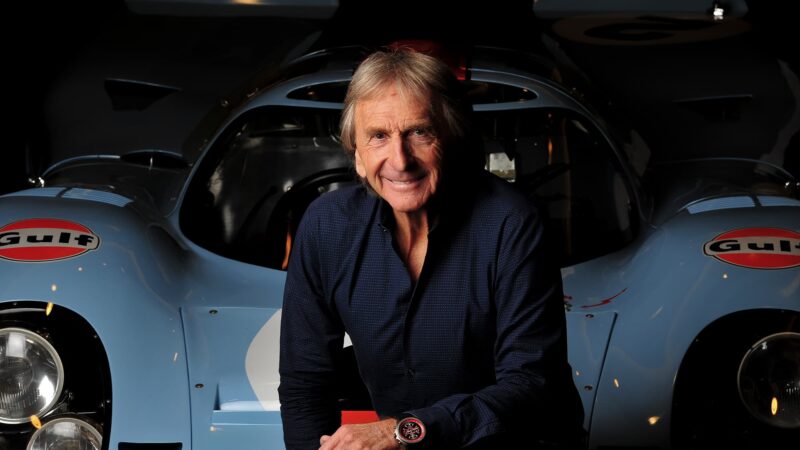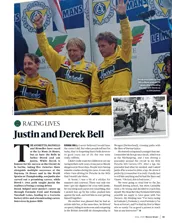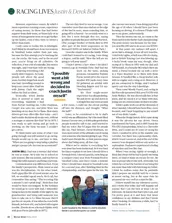Partly because he spends half his life on the other side of the Atlantic, I’ve not sat down with Derek for a couple of years, but when last we did, in a pub during a Goodwood Revival weekend, I can remember an evening spent listening to stories that literally made me cry with laughter and which are entirely unrepeatable here. He was the life and soul, making a handful of journalists feel like his best friends. It’s why when he stopped earning a living racing for car manufacturers, he started another being an ambassador for them instead. Because who’d not want their interests represented to customers and the media by Derek Bell?
And yet I have always detected a slight vulnerability there too, an occasional need to explain why he was not even more successful than he was. Is it perhaps because those achievements for which he is most famous – all those victories in long distance sports car races – let’s not forget his three Daytona 24-hour victories either – only happened with the help of team-mates? If so let’s not forget those two World Sports Car Championships. And this: throughout Porsche’s involvement as a factory team in the halcyon era of Group C racing, just one driver was it retained from its point of entry in 1982 to its withdrawal after Le Mans in 1988: Derek Reginald Bell.
Memories of Derek? As a driver, Le Mans 1995 where he shared the yellow Harrods McLaren F1 GTR with Andy Wallace and his son Justin. It is well known that they should have won, and but for a failing transmission would have won, but he still rated standing on the podium with his boy as his greatest moment in motor racing.
What is perhaps less well known is just what a difficult car that McLaren was to drive with almost no downforce, especially in the wet, and this was one of the wettest Le Mans of all. And I remember in that filthy night the freakishly talented JJ Lehto in the works-owned Ueno Clinic F1 GTR reeling in Justin. Years later a charmingly embarrassed JJ told me there were laps he was half a minute quicker than anyone else on the circuit that night. Faced with losing their lead, the Harrods team pitted Justin, installed Dad behind the wheel and sent him out. And suddenly the rapidly dwindling gap shrank no more. At the time JJ Lehto was 29 and had been an F1 driver for the previous six seasons. Derek was 53.






